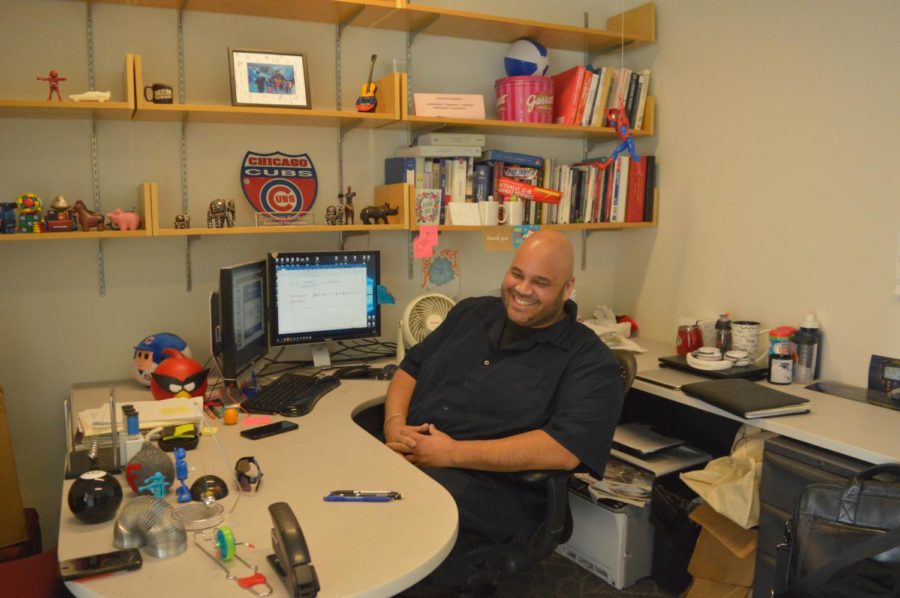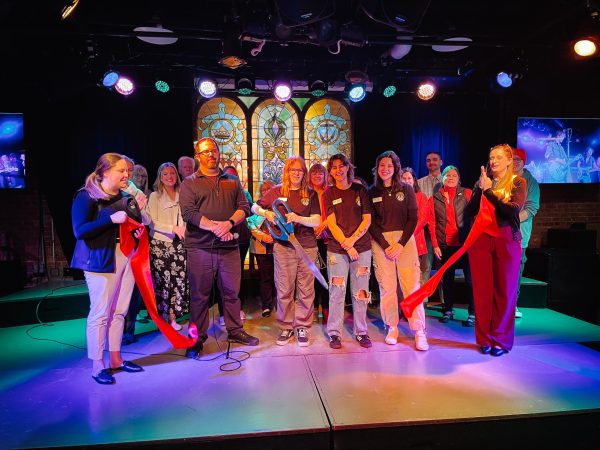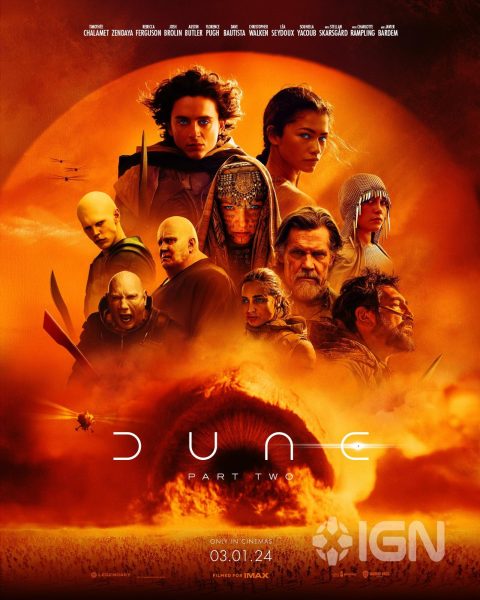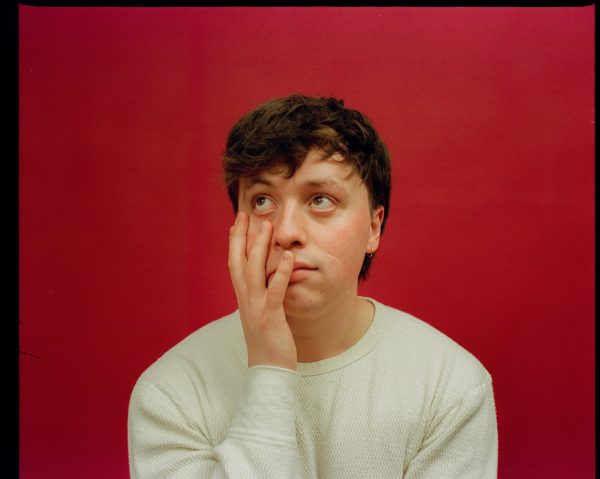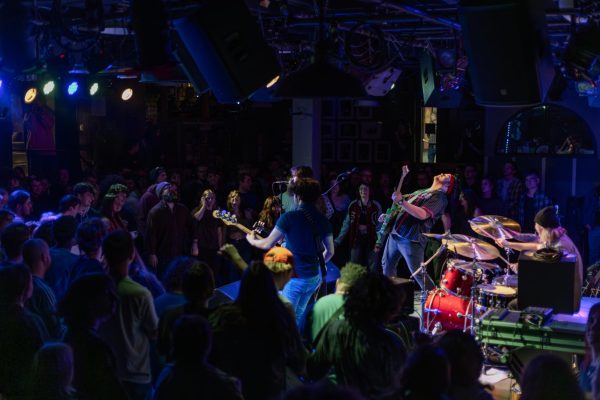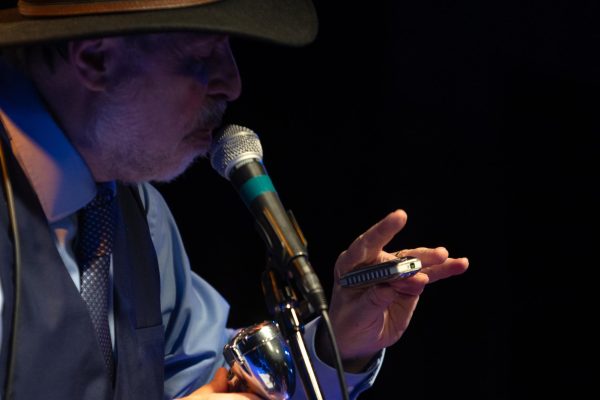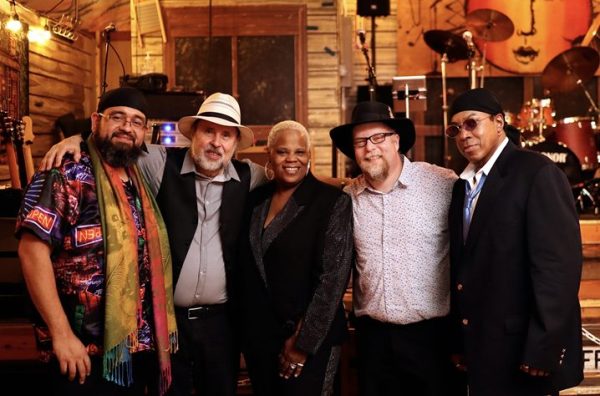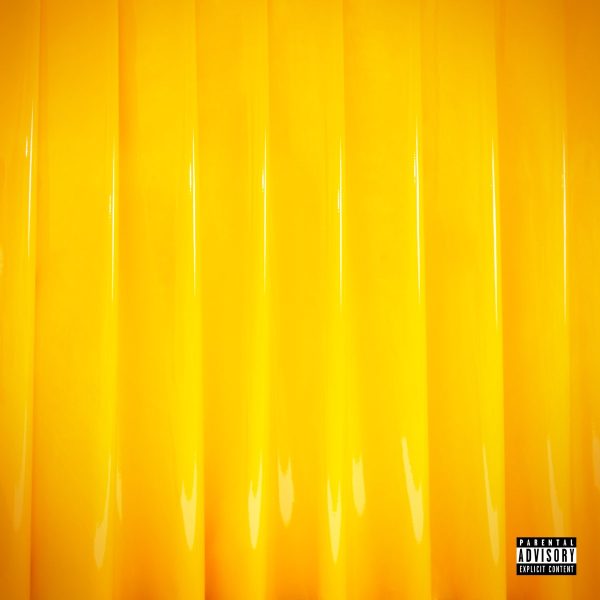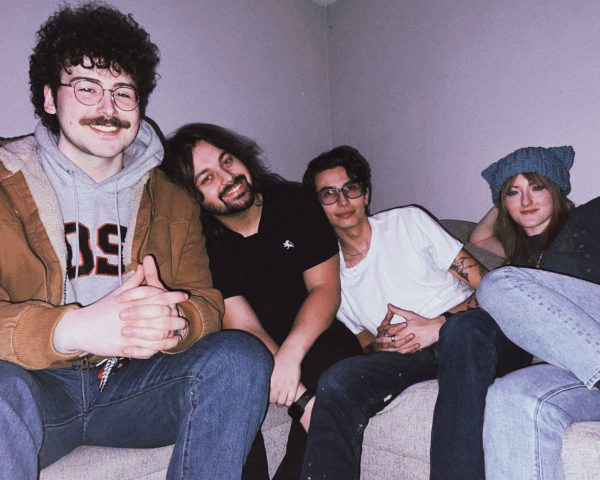- Limelight
- Limelight / Music
- Limelight / Music / Campus Music Sub
- Limelight / Music / Local Music
- Limelight / Profiles
Iowa State lecturer juggles engineering and rap sorcery
Jordyn DuBois/Iowa State Daily
Aerospace Engineering Professor Cameron Rayburn isn’t your typical professor. On the side, he writes and produces music under the name ‘Slice the Celestial Sorcerer.’ Rayburn says he really got into music after winning a talent show at his freshman year orientation, and from there built his skills in producing music and DJ.
February 28, 2019
Cameron Rayburn, lecturer in aerospace engineering, has a normal office. A Spider-Man figurine hangs from the ceiling on a string. Chicago Cubs merchandise is scattered around the room’s walls and sits on his desk. A model DeLorean car sits behind his chair. Books, pictures, untidy stacks of paper, a Newton’s cradle, everything you’d typically expect of a faculty office. Rayburn isn’t your typical faculty member, however.
Working under the moniker SLICE the Celestial Sorcerer, Rayburn produces and raps his own songs along with being a lecturer in Iowa State’s aerospace engineering program. On his door is a sign that details “what Cameron is up to.” Options include dropping beats.
Rayburn grew up in Park Forest, IL, a suburb of Chicago, and neighboring Matteson. It was there, during his sophomore year of high school, he tried his hand at rapping. Rayburn has since been a part of two rap groups, hosted a radio show and released a solo album. Starting as a bedroom musician unknown to most people, Rayburn decided take his craft to the live stage during his freshman year of college.
“There was a freshman talent show and I didn’t really think about performing, I’m not trying to do any of that, I mostly did stuff in my room and didn’t perform in front of people,” Rayburn said, laughing. “And then some people found out I did it and everyone’s like ‘you should do it, you should do it.’ Finally I was like ‘I don’t know anyone here so I may as well do it.’ And I ended up winning it.”
That performance opened new doors for Rayburn. A fellow engineering student in his chemistry class known as DJ Roadrunner happened to make beats and approached Rayburn to make music together. Rayburn, not being experienced in producing, jumped on the opportunity to work with a producer. Together they formed the duo Liquid Dimensions.
After learning the ropes of DJ’ing at his college’s radio station and the breakup of Liquid Dimensions, Rayburn returned home to a factory job in the summer between his sophomore and junior year. Using money from his job, Rayburn invested in equipment for producing and met up with a fellow engineering student at Tuskegee University.
Rayburn and his friend, who raps under the name Metah, created another group known as Organik Aura. The pair performed at various live shows, disbanding when Metah left for Arizona to take on a new job. With this group, Rayburn experienced his favorite concert experience to date.
“I had it at one point where my beat was gonna fade out and the band would kick in and so now we were performing over a live band,” Rayburn said. “And it was awesome, it was probably my favorite show I’ve ever done because I love doing stuff over live bands at shows.”
On top of rapping and studying aerospace engineering, Rayburn also ran his own radio show out of his house on Saturday nights. The show garnered attention from international audiences in countries like Germany and caught the eye of prominent rappers in the industry. MC Lyte, one of rap’s first feminist ambassadors, even approached Rayburn to create a variety of drops for the introduction of the show. Rayburn’s self-made radio production ended abruptly when Rayburn’s hard drive crashed, erasing 90 percent of his music.
The loss landed a devastating blow to Rayburn’s portfolio and took him years to regain. Some songs were lost forever. As time went on, Rayburn hung up the hat on his music career for years.
Sometimes though, there are itches that need to be scratched. Rayburn fell back into producing and rapping at Iowa State.
While earning his master’s of aerospace engineering degree, Rayburn joined the aerospace engineering department in 2012. There he teaches an introductory course, an aerodynamics class and an aerospace systems integration course. Rayburn doesn’t often rap during or for his class, but does DJ for an end-of-semester project for his introductory course that occurs in the atrium of Howe Hall. He can’t turn down an offer to freestyle, however.
Then comes the name. It’s an interesting one and a mouthful.
“My name is kind of weird you know, Slice the Celestial Sorcerer, however it kind of grew to be that because when I first started rapping I was just Slice, that was the only name I had,” Rayburn said. “It’s an acronym, it’s stands for Sonic Lyrical Incisions Causing Elevation.”
The “Celestial Sorcerer” portion of the name came from comments from peers at his college. People would often tell him he could “work magic” with less-than-studio-quality equipment. From that, Rayburn adopted the word sorcerer. “Celestial” is a nod to his major and current profession.
Today is a different era in music. Rayburn grew up in the time of Missy Elliott, Outkast and R.A. the Rugged Man. Today’s rap has shifted from a lyric-driven industry to a production-based industry. Listeners value lyrical content less so for their meaning and more for their karaoke-potential, and popular rap songs seemingly require trap hi-hats and a vast catalog of ad-libs. Rayburn’s music harkens back to the golden age of hip-hop, bringing with it deep, groovy bass lines and a cadence that isn’t heard in much of today’s music.
“I always wanted to have, when I do stuff, I always wanted to do stuff that had meaning, like I’m saying something,” Rayburn said. “I didn’t want it to just be spouting nonsense, there’s a time for that but that’s just not what I felt like my purpose for what I was doing was. I make my music to get my feelings off my chest and put them somewhere.”
Since returning to music, Rayburn has performed in various Ames venues, including staples like London Underground, DG’s Tap House and the Maintenance Shop. He released one album in 2017, titled “In Psyche Low Media Brown,” that clocks in at a hair under an hour long.
Today, Rayburn has turned to reconnecting with old friends to produce music, as well as maintaining his own solo career. Recently, Rayburn got in touch with a friend who also lives in Iowa. Michael Foster, who goes by The Source, attended high school with Rayburn and threw out the proposition for a collaborative album. Rayburn obliged.
“Cameron is a friend for more than 30 years and I’ve always been a big supporter of his music,” Foster said. “So it was a natural thought when I decided to dust off my microphone and record an album. It’s a dream come true for me, and working with him has been seamless. We know each other so well that we zig together, we zag together. That’s why I think our stage chemistry is so good. We just have that history.”

